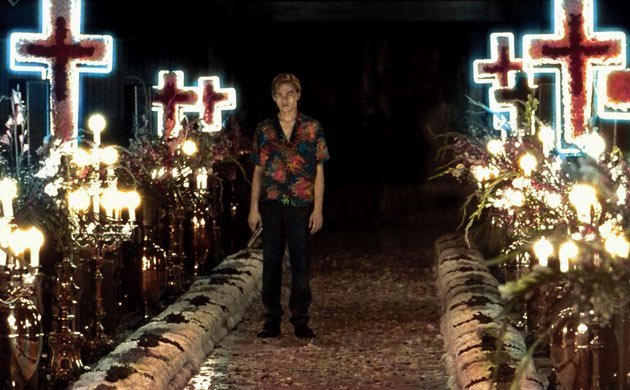
Language Features in Romeo + Juliet
A metaphor is a hidden, implicit comparison between two seemingly unrelated things. It is a figure of speech in which two strikingly different concepts or things are compared to one another based off a single common characteristic.
“He that hath the steerage of my course, direct my sail!”
Romeo 1:4
Romeo speaks these words just as he begins to make his way to the capulet ball. In this metaphor, Romeo compares his fate to a ship. The common characteristic that binds them and brings us meaning is the fact that the ship cannot control the path it takes, its captain does this. Romeos fate is similar here as he believes that someone/something is in control of it for him. This links to the larger notion of fate that is communicated in the play as it shows the acknowledgement from one of the main characters that a greater power rules their actions. This was a common belief of the people in Elizabethan England, who believed their life was pre-determined.
“O, I am Fortune’s fool!”
Romeo 3:1
These words were delivered by Romeo after he killed Tybalt, this highlights how he regrets killing him, and how ludicrous he has been. He says that he is a cruel victim of fate, which regards to the metaphor of ‘fortunes fool’. He was caught in a moment of instance and just taking actions without taking a minute to think about the consequences which led him to commit a crime. Romeo is referring to the careless aspect of his personality – the one that leads him to end up for instance committing this crime. This metaphor signifies Romeos faith in the circumstance that sometimes fate can betrays us in inconceivable ways.